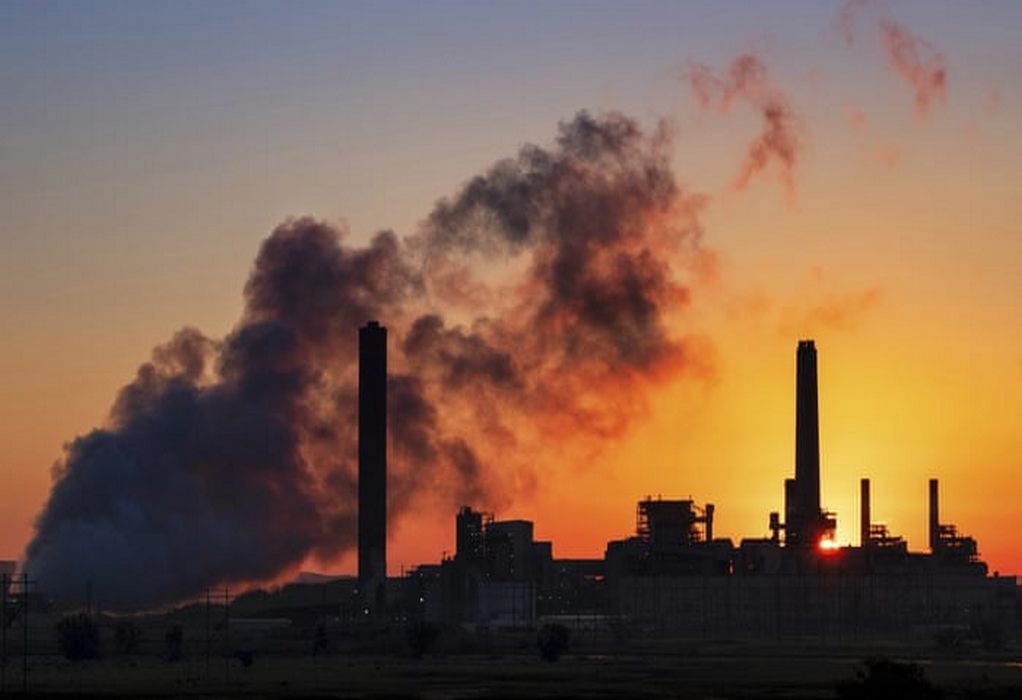Australia’s parliament passed breakthrough climate laws targeting the nation’s worst polluters, forcing coal mines and oil refineries to curb emissions by about five percent each year.
The laws apply to 215 major industrial facilities – each producing more than 100,000 tonnes of greenhouse gases a year – and form the backbone of Australia’s pledge to reach net zero emissions by 2050.
Experts said the laws signalled the end of Australia’s bitter “climate wars” – a decade of political brawling that has repeatedly derailed attempts to tackle the country’s contribution to global warming.
With the new legislation, the country’s centre-left Labor government has forecast it can stop 200 million tonnes of carbon from being pumped into the atmosphere over the next decade.
Aluminium smelters, coal mines, oil refineries and other large polluters will be forced to cut their emissions by 4.9 percent each year.
In the weeks ahead of the vote, the government struck a deal on the so-called Safeguard Mechanism after engaging in high-stakes bargaining with the left-wing Greens party.
The previously sceptical Greens, whose support was needed to pass the laws, agreed to back the carbon plan after persuading the government to put a hard cap on emissions.
Greens leader Adam Bandt said the move compelled oil and gas corporations to slash their emissions “for the first time ever in law”.
Australia’s economy is fuelled by mining and coal exports — and it is among the biggest emitters of carbon dioxide, per capita, in the world.
For years, Australia had the reputation of acting as a laggard on global action to stop climate change.
But a series of severe natural disasters helped convince the country’s leaders to take the climate emergency seriously.
Heavy storms in 2022 caused catastrophic floods on Australia’s east coast, in which more than 20 people died.
The “Black Summer” bushfires of 2019-2020 burned more than eight million hectares of native vegetation, while marine heatwaves caused mass coral bleaching on the Great Barrier Reef in 2016, 2017 and 2020.
Prime Minister Anthony Albanese’s Labor government was swept to power last year promising to change the pro-fossil fuel stance of the previous decade-old conservative government.
Although many praised the laws as a crucial first step, sustainability expert Wiedmann warned Australia could not rest on its laurels.
Australia’s mining industry has warned that the financial burden of compliance could lead to massive job losses.
Global mining giants Rio Tinto and BHP operate a number of mines and smelters that will be forced to make emissions cuts.
Australia’s Climate Council has estimated that the 215 facilities are responsible for almost 30 percent of the country’s total emissions.
Tags: Austarlia, Coal Mines, Emission Cap, NetZero



Recent Posts
IMI Greater Noida Signs MoU with IME (I) to Launch A New Student Chapter
GCMD Completes World’s First Pilot Demonstrating Full Carbon Value Chain from Ship-Captured CO2 in China
NH3 Clean Energy Raises $710,000 to Advance WAH2 Clean Ammonia Project
Coventry University Collaborates with Indian Institutions to Advance Hydrogen Fuel Cell Education
Magenta Mobility partners with MOVER to power sustainable last-mile deliveries across India
Union Home Minister Amit Shah Visits Greenzo Energy’s Green Hydrogen Facility in Sanand
Godrej Enterprises Group (GEG) powers India’s smart, sustainable logistics future
Delhi Expands Electric Bus Fleet with Launch of 100 New DEVi Buses to Boost Green Mobility